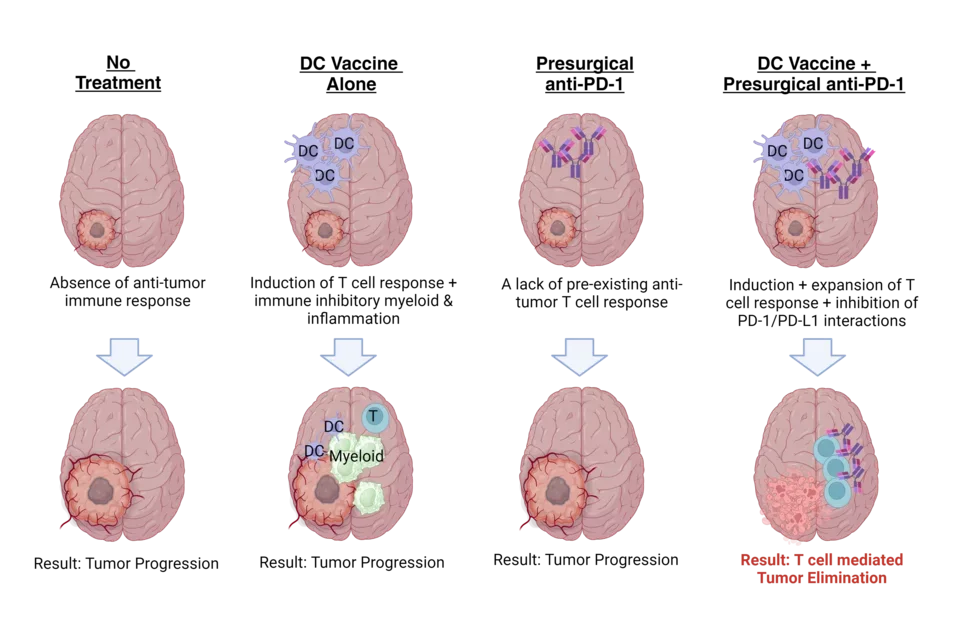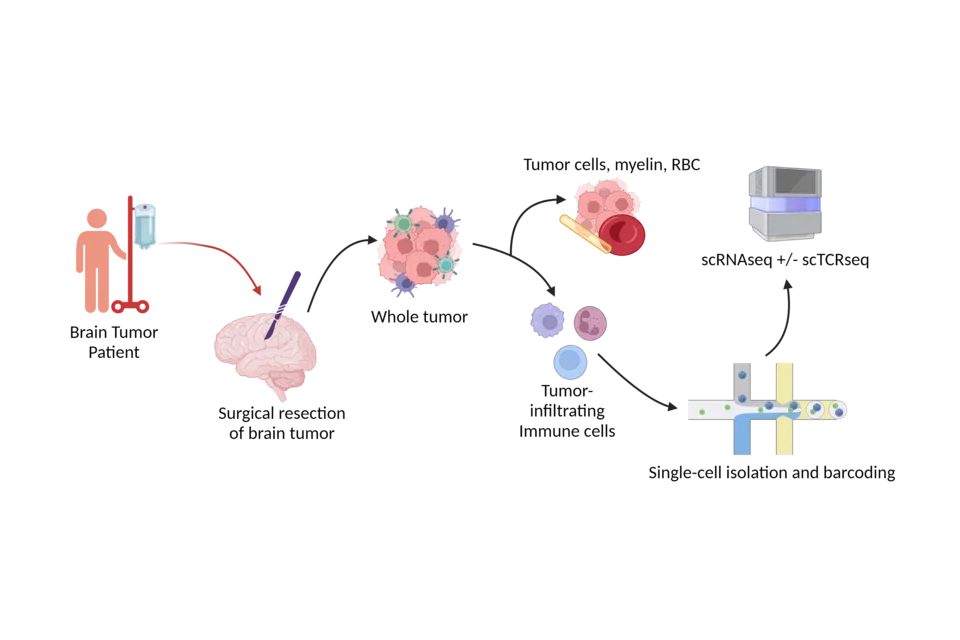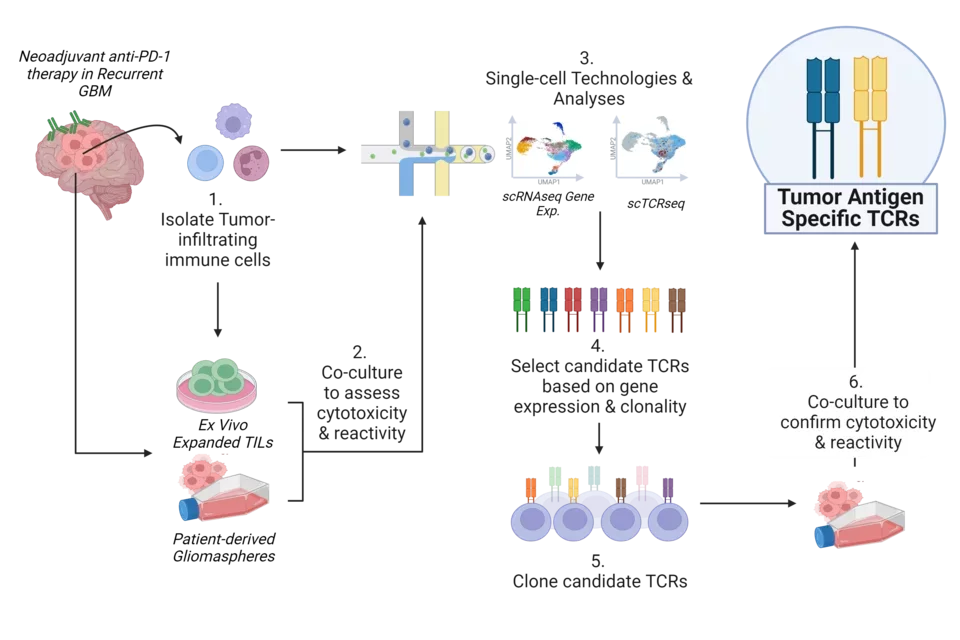Our Research

Combination of Pembrolizumab and ATL-DC in Recurrent GBM
Recurrent Glioblastoma (GBM) is the most severe form of brain tumor with no current cure. Our group conducted a phase 1 clinical trial that showed that a dose of pre-surgical dose of Pembrolizumab (anti-PD-1 checkpoint blockade) could significantly improve patient survival by reinvigorating the patient’s immune system. In previous clinical trials, our group has shown the effectiveness of using autologous tumor lysate (ATL) pulsed dendritic cell vaccines at improving patient survival by improving trafficking of tumor killing immune cells into the tumor microenvironment. Nevertheless, despite the improvement in survival, neither therapy on its own is able to completely cure patients. Whether the combination a dose of pre-surgical dose of Pembrolizumab with an autologous tumor lysate pulsed dendritic cell vaccine can improve patient survival and how mechanistically it improves patient survival is an active question that members of our group are exploring and also that our group is trying to answer through a phase 1 clinical trial (ClinicalTrials.gov Identifier: NCT04201873).
Characterizing the tumor-infiltrating immune populations in GBM and CNS Metastatic tumors using single-cell technologies
The increasing availability of single-cell sequencing technologies and in silico tools to analyze such data has allowed previously unprecedented exploration into the immune cells that infiltrate the tumor. How do these cells interact with one another to kill the tumor or promote its growth or how these cells change with various forms of therapy or how they differ between different kinds of tumors are questions we have been interested in exploring as a group. Based on these in silco results, we pursue in vitro and in vivo methods to validate these findings and understand underlying immune mechanisms.


Leveraging single-cell technologies to find tumor-reactive TCRs in an antigen-agnostic manner
Compared to other cancer types, glioblastomas tend to have a lower non-synonymous mutation rate capable of generating quality neoantigens. As such, when looking for tumor-reactive T Cells for potential TCR-T therapies, finding such T cells represents a “needle in the haystick” problem where it is challenging to isolate such T cells using predicted neoantigens. Leveraging our vast biobank of patient tumor infiltrating immune cells, ex vivo expanded tumor-infiltrating T cells, patient-derived gliombaspheres and single-cell resources, we are attempting to find tumor-reactive T cells in a neoantigen-agnostic way.